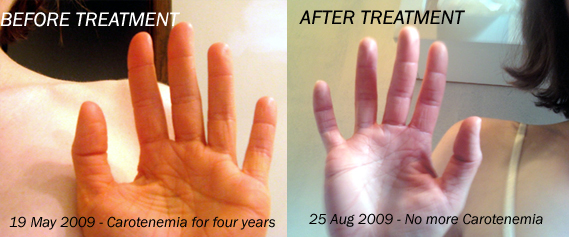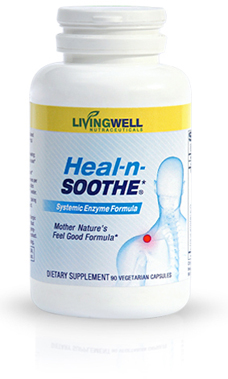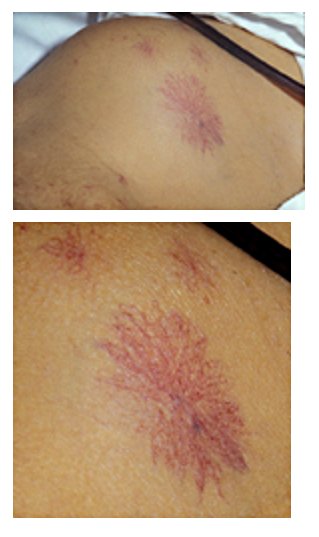 Your eyes may be the window to your soul, but your skin is a window to the rest of your body, as skin issues often represent the first signs of something going amiss underneath.
Your eyes may be the window to your soul, but your skin is a window to the rest of your body, as skin issues often represent the first signs of something going amiss underneath.
The skin is often overlooked as simply a covering, but as your body’s largest organ, it acts as a barrier and shield against the outside world. And, far more than this, it manufactures neurotransmitters and hormones found in your brain, as well as produces other hormones imperative for the rest of your body, like vitamin D and some thyroid hormones.
Your skin is intricately linked to your brain and your immune system, and in many ways is the link between your body and the “outside” world … this is why you instinctively pull back your hand if you touch something hot or sharp, and get goose bumps when it’s cold out or you’re suddenly scared.
By staying in tune with changes in your skin, you can even spot systemic diseases that you otherwise may have missed.
7 Serious Diseases Your Skin Problems Might Signal
7. Hodgkin’s or Non-Hodgkin’s Lymphoma
If your skin itches intensely, and it doesn’t seem to go away, this can be an early warning sign of Hodgkin’s or non-Hodgkin’s lymphoma. Ordinary itchy skin (associated with dryness, for instance) will eventually go away. If your skin itches persistently and feels like it can not be relieved, see your doctor.
6. Hypothyroidism
 Is your skin dry, cold and perhaps pale or yellowed? These are signs of hypothyroidism, or an underactive thyroid gland.
Is your skin dry, cold and perhaps pale or yellowed? These are signs of hypothyroidism, or an underactive thyroid gland.
If your skin turns yellow (the palms of your hands and soles of your feet may even look orange), this can signal carotenemia, which is caused when beta-carotene accumulates in your bloodstream.[i]
While this can occur from eating a diet rich in orange fruits and vegetables (carrots, sweet potatoes, squash, etc.), it can also be a sign of hypothyroidism. This is because your thyroid gland normally processes beta-carotene, but if it’s not working properly, the beta-carotene will accumulate, leading to yellow/orange skin.
5. Hepatitis C
If thick, scaly, dry plaques appear on your skin, particularly on your feet or hands, it could be necrolytic acral erythema (NAE), a condition that is strongly associated with hepatitis C as well as zinc deficiency. The plaques may have a dark red rim, and may burn or itch. Though rare, NAE has only recently been discovered and is emerging as being nearly exclusively associated with the hepatitis C virus.
4. Addison’s Disease
Addison’s disease, or adrenal insufficiency, is a potentially life-threatening condition in which your adrenal glands do not produce enough of certain hormones, including cortisol and aldosterone. Along with symptoms like cravings for salt, muscle weakness and fatigue, Addison’s disease also leads to skin changes, including:
- Darkening skin all over your body, similar to developing a tan, with skin folds, scars, and areas covering bony regions (knees, elbows, knuckles, etc.) darkening even more
- A bluish-blackish color, or simply skin darkening, on the areola (around your nipples), lips, vagina and rectum, as well as in the creases on the palms, is also common
3. Liver Disease
Changes to your skin are often among the first signs of liver disease. Changes to watch for include:[ii]
- Jaundice (skin may turn yellow to brown)
- Unexplained itching, particularly on your hands and feet
- Extremely itchy lesions or nodules on your arms or legs (known as prurigo nodularis)
- Spider angiomas, an abnormal collection of blood vessels near the surface of your skin (usually on your face or trunk). They may have a small, red dot in the center, surrounded by fine lines that radiate outward. If pressure is applied, the blood vessels will disappear, then reappear when pressure is removed
- Bier spots, which are small, irregularly shaped, light-colored patches on your arms or legs (these also disappear if pressure is applied)
- Paper-money skin, which appears as needle-thin, thread-like capillaries on your upper trunk
2. Celiac Disease
If you often get a very itchy outbreak of small blisters on your forearms, knees, buttocks, face or scalp, it could be dermatitis herpetiformis, which occurs in one in four people with celiac disease, or an intolerance to gluten.
1. Diabetes
If you notice brown, sometimes rough or scaly patches on your legs (especially on your shins), it could be diabetic dermopathy. This occurs when damaged blood vessels or capillaries leak, leading to the brown, oval or circular patches. Although not dangerous in and of themselves, if you haven’t been diagnosed with diabetes and notice them, you should get tested. Other skin changes that may occur among people with diabetes are:
- Blisters or ulcers on the feet
- Tight, thick waxy skin on the backs of hands
- Yellow, pea-like enlargements on the skin, which may itch or be surrounded by a red halo
The #1 Key to Preventing Many Chronic Diseases?
Optimizing your immune system! This means eating antioxidant-rich fruits and vegetables, exercising and getting proper sleep, as well as boosting your body’s supply of proteolytic enzymes, which begin to decline in your body in your late 20s. You can find proteolytic enzymes , which help fight viruses and support immune system health, in Heal-n-Soothe, an all-natural systemic enzyme formula that has the strongest and highest potency of any proteolytic enzyme formulation available.
 Heal-n-Soothe provides a one-two punch against chronic disease, because not only does it provide valuable proteolytic enzymes, it combines them with 11 other natural anti-inflammatories. In case you haven’t heard, heart disease, cancer, Alzheimer’s disease, diabetes – even obesity and aging itself – all have a strong inflammatory component, and may in fact be caused or exacerbated by unchecked inflammation in your body.
Heal-n-Soothe provides a one-two punch against chronic disease, because not only does it provide valuable proteolytic enzymes, it combines them with 11 other natural anti-inflammatories. In case you haven’t heard, heart disease, cancer, Alzheimer’s disease, diabetes – even obesity and aging itself – all have a strong inflammatory component, and may in fact be caused or exacerbated by unchecked inflammation in your body.
By quelling this inflammation with the 12 all-natural ingredients in Heal-n-Soothe, you can help keep your body functioning in optimal health.


